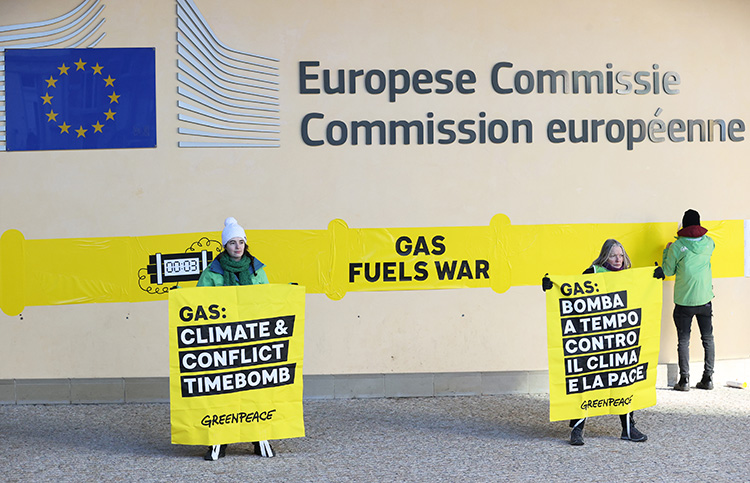
Environmental activists gathered outside the EU Commission in Brussels on Wednesday warning that in addition to financial and geopolitical arguments against the construction of an EastMed natural gas pipeline, sabotage similar to Nord Stream last year was also a possible risk.
A Greenpeace report published on March 1 argued that the construction of an EastMed gas pipeline not only would accelerate a climate crisis but it could also run the risk of sparking conflict between South Cyprus and the Turkish Republic of Northern Cyprus (TRNC).
The report titled “Time bomb – the geopolitical and climate risk of the EastMed pipeline” indicates that “existing geopolitical conflicts in the Eastern Mediterranean region could worsen if the plan to construct the EastMed pipeline is implemented.”
The project lost momentum in January 2022 after Washington withdrew its support in a non-paper leaked to the press, along with further arguments in favour of alternative fast energy solutions and regional cooperation.
But the feasibility of the €6 billion project has remained under review with a commercial viability study funded by the European Commission.
Protesters, who stood in front of the EU Commission building on Wednesday, held banners that warned gas was a geopolitical and climate ticking time bomb.
Greenpeace says an EastMed pipeline project “constitutes a highly explosive security issue for the region” as it “increases the danger of a military confrontation between Türkiye and Greece on the demarcation of their respective maritime borders as well as South Cyprus and the Turkish Republic of Northern Cyprus.”
The organisation fears that in regional terms EastMed could attract attention from non-state armed groups such as Hamas and Hezbollah, while on a global scale, “considering the escalating confrontation between Russia and the USA and NATO, there is a growing danger that the EastMed infrastructure could become a potential target and collateral damage in this geopolitical power struggle.”